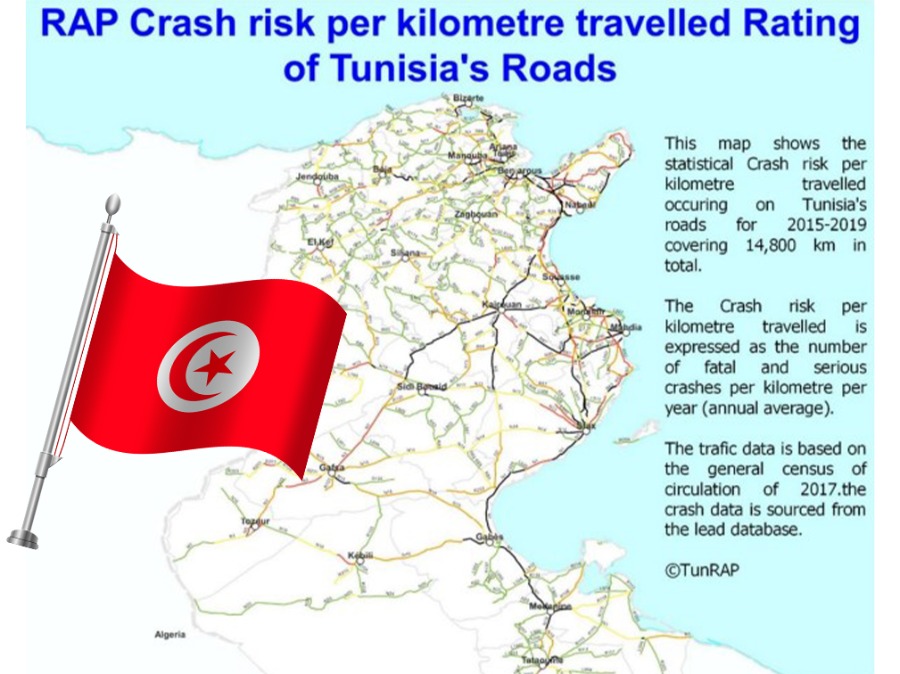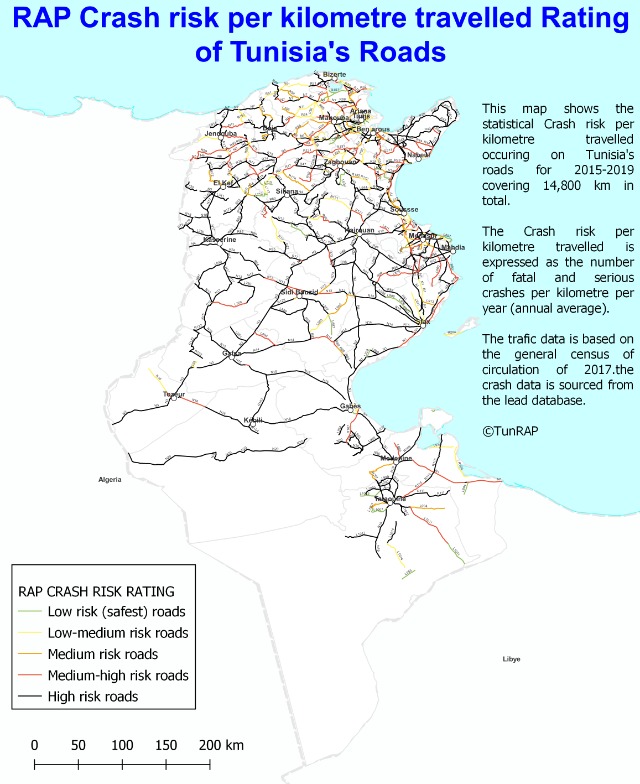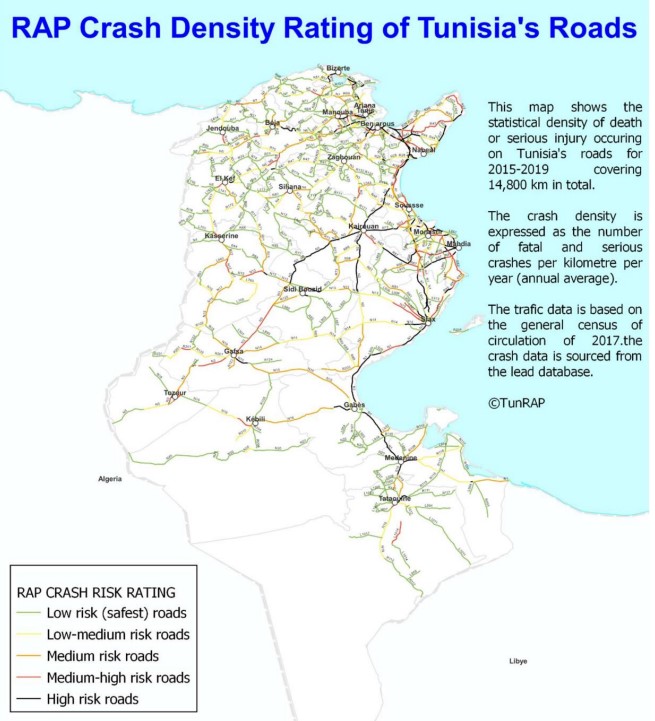University of Sfax has completed a 14,800 km of Risk Mapping assessment of Tunisia’s road network to inform an understanding of crash risk and evidence-based investment to reduce road traffic deaths and reduce serious injuries in the country.
Tunisia is the second deadliest country in the Maghreb region. Traffic crashes are now the fifth leading cause of deaths in the country and the vehicle fleet has doubled between 2000 and 2015.
Crash Risk Maps use detailed crash data to capture the combined risk arising from the interaction of road users, vehicles and the road environment, and provide an indication of the overall road system’s safety performance.
The maps provide an at-a-glance and objective view of where fatal and serious injury crashes have occurred and where serious crash risk is greatest. Using iRAP’s global methodology allows benchmarking and performance tracking over time.
Primary metrics include crash rates per kilometre/mile and crashes rates per kilometre/mile travelled with more detailed versions including road user, age group or in relation to average crash rates for that road type.
Crash Risk Maps and Star Ratings are often used together as part of a strategic approach to managing risk and investment. They also provide a useful source of calibration for Fatal and Serious Injury (FSI) Estimates and Investment Plans.
Tunisia’s study produced two risk maps detailing the Crash Risk per Kilometre Travelled Rating and a Crash Density Rating:
iRAP’s Safety Insights Explorer data sheds further light on the human and economic impact of road crash injury in Tunisia, as well as the Business Case for Safer Roads in the country.
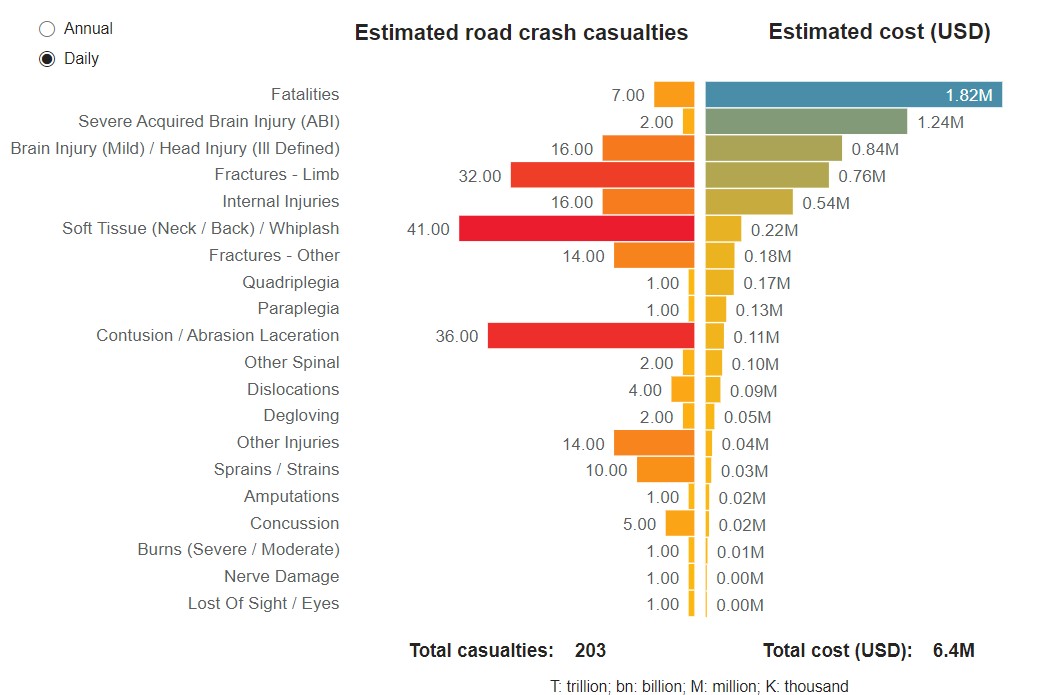
According to the Explorer achieving UN Targets 3 and 4 for greater than 75% of travel on 3-star or better roads for all road users in the country by 2030 stands to save an estimated 193,228 lives and serious injuries over the 20-year life of road treatments with an economic benefit of USD$8.6 billion – $22.8 for every $1 spent.
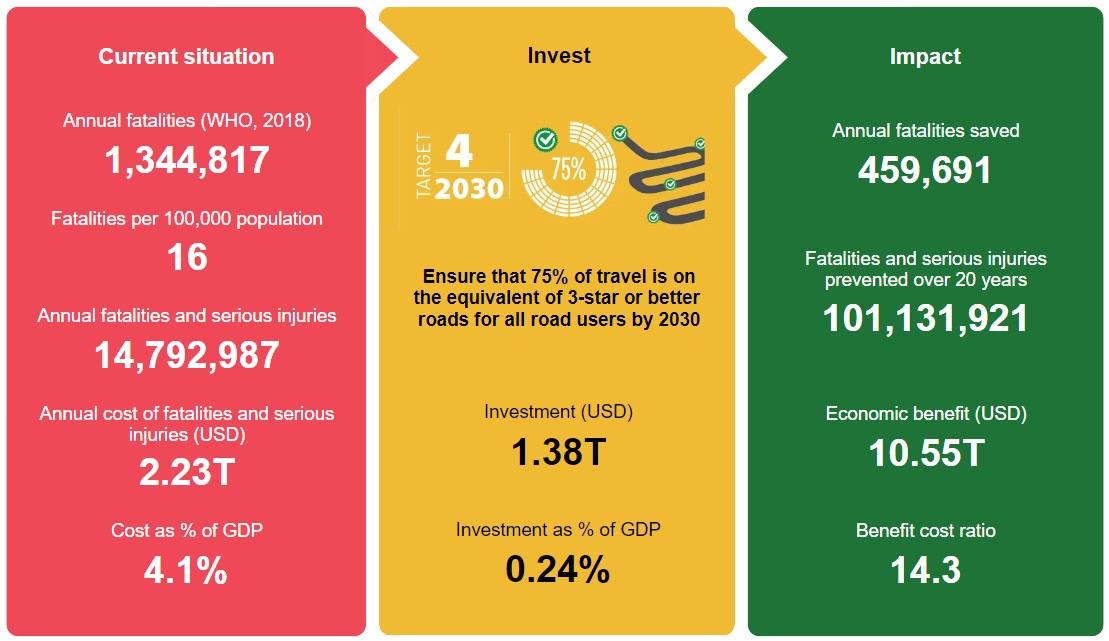
To date, partner-led iRAP activity has assessed 14,938 km of roads and 2 schools in Tunisia. 60 people have benefited from iRAP global/on-line training, along with 12 people trained in events delivered locally.
Further information on the study and outcomes can be sourced by contacting Project Supervisor Ahmed Ksentini on email ahmed.ksentini@fss.usf.tn


